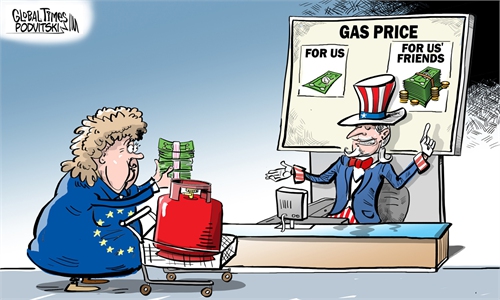Pragmatism toward China-Germany ties called for amid noises ahead of Scholz's potential visit

German Chancellor Olaf Scholz. Photo:Xinhua
Rational members of the German business sector have continued to give positive signals about China, demonstrating a desire for more win-win cooperation despite there are conflicting attitudes toward China and noises within its government.
Meanwhile, German Chancellor Olaf Scholz said that he will travel to China with a delegation of business leaders in early November, German media outlet Die Welt reported on Friday. However, the potential visit has not yet been confirmed by the Chinese Foreign Ministry.
Although there are still some anti-China voices within the German government, Scholz has shown a positive attitude toward cooperation with China, responding to the general demands of the domestic economic community. While this resistance within the government is likely to persist, Germany is expected to demonstrate the stability the world now desperately needs through cooperation with China rather than decoupling, experts say.
Scholz's planned trip comes at a time when Berlin is reviewing its trade relationship with Beijing, and Scholz's coalition is debating whether to allow Chinese shipping giant Cosco to invest in Germany's largest port in the northern city of Hamburg. CSU regional group leader Alexander Dobrindt asked German Chancellor Olaf Scholz to "stop the Chinese entry as soon as possible," German newspaper Welt am Sonntag reported on Sunday.
Earlier this month, Scholz said decoupling from China would be the "wrong answer," as "globalization has been a success story that enabled prosperity for many people."
"Within the German government, there are indeed some stubbornly anti-China politicians, most of whom do not understand China well. Their mindset obscures them from seeing the importance of China-Germany relations for the time being," said Jiang Feng, a research fellow at Shanghai International Studies University.
Given the different values and political philosophies of the three parties in Germany's coalition government, the instability in their attitudes toward China is likely to persist, he also noted.
But Scholz has shown his pragmatism through his statements. Instead of being kidnapped by some ideologically antagonistic voices, he has chosen to defend the interests of Germany and Europe, Jiang said.
Meanwhile, there was an uproar when German business chiefs brought up a proposal to screen all company investment going into China.
"We can only warn against Germany turning away from China," said Markus Jerger, head of the Mittelstand Association, part of an alliance representing over 900,000 of the small and medium-sized firms that form the backbone of Europe's biggest economy, Reuters reported earlier this month.
"To put a brake on the German economy's China activities, as the economy ministry would like, or is trying to do, is the wrong way," said Jerger.
There is also a growing demand among rational people in the German economic sector for Germany to strengthen cooperation with China. Many are looking forward to Scholz making a visit to China as soon as possible, observers noted.
In the economic sector, major investment projects are still underway and the trade volume between China and Germany continues to grow, which is a barometer of China-Germany relations, Jiang said.
The successive positive signals from Scholz and the German business sector toward China have emerged in the current context of great global instability. It is very important for the world that two such important countries can strengthen their cooperation and communication to inject stability into it, he said.
For now, despite all the problems that exist between China and Germany, the German economic mainstream and a significant number of politicians are still clear-headed and aware that China-German cooperation is essential for Germany's economic development, for the maintenance of Germany's global position and for dealing with global issues and climate change, analysts say.
If Scholz's visit to China comes to fruition, he will be setting an example to the rest of Europe that practical cooperation with China is a win-win situation, Zhao Junjie, a research fellow at the Chinese Academy of Social Sciences' Institute of European Studies, told the Global Times on Monday.

